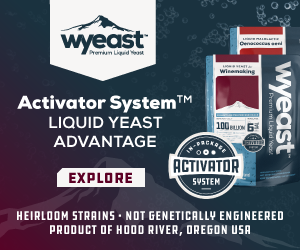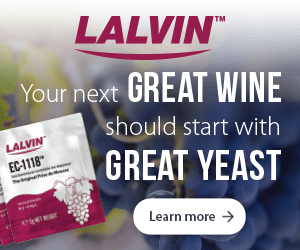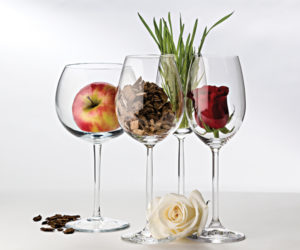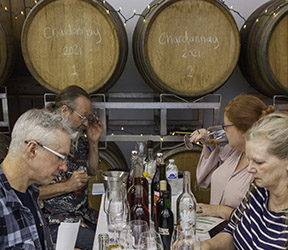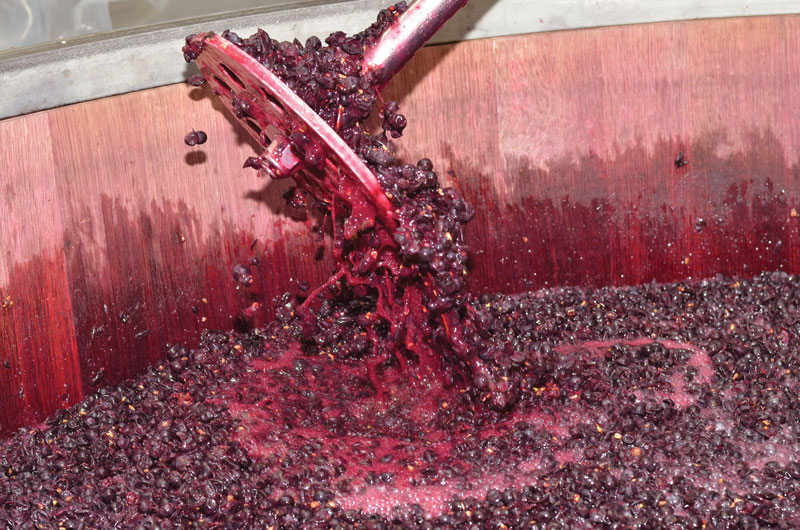How many of you wish to take a certification course about wine? If you do, knowing your personal objectives is helpful to selecting the best program for you. Is it to serve wine in a hospitality establishment such as a restaurant or tasting room? Better select wines with confidence on your own? Influence the grapes you purchase for your own winemaking? Become more knowledgeable about wines of a particular region? Or to become a wine judge? There are many wine education programs that one can participate in to gain knowledge about wine and begin the calibration of one’s palate. These programs differ in their goals and objectives in their presented education. The most recognized programs are the International Sommelier Guild of America, Society of Wine Educators (SW), Wine and Spirits Education Trust (WSET), and American Wine Society (AWS).
Additionally, there are many state universities, community colleges, culinary schools, and private schools that provide wine education and certifications too. In fact, there is access to at least one wine program in every U.S. state. Examples include the Wine School of Philadelphia, ranked as one of the best sommelier training programs in America by students and professionals alike; the University of Nevada, Las Vegas, which has developed a prestigious program in their Hospitality Department; and Fine Vintage LTD, a newer school that hosts WSET courses in many U.S. states.
Focusing on the first four programs mentioned, as I have gone through three of them, I am often asked what the differences are. Hopefully, those considering any will find my opinions of what they offer helpful.
The International Sommelier Guild is the most widely known program because so many people have been served by a sommelier while fine dining somewhere. This program began over 30 years ago and is presented internationally in seven different languages. The emphasis here is service of alcohol — that is beer, wine, and spirits. So one must learn about all forms of alcohol to be of help to a restaurant patron in selecting a complementary beverage to their food. There are four levels to this program with the highest level being a Master sommelier. At each level the education builds on its foundation from the previous level’s information. The organization is growing towards more of the business end as well, but the focus seemingly remains on service and strict guidelines to service.
Society of Wine is the most user-friendly education program with a wonderful, easily obtained published manual of material and a website at a very reasonable price to utilize in furthering one’s wine education. By participating in the program’s weekly webinars, there is personal interaction with Jane Nickles, who comes from a culinary background and has led the education for over 20 years with a no-nonsense explanation of wines tasted along the way to further your understanding of the wine. This course is more about the global wine industry, its history, and local terroirs that explain the uniqueness of the world’s most famous wines. It focuses far less on service than the sommelier program, although these skills are covered.
Wine Spirits and Education Trust is based in the United Kingdom. This program is one of the oldest, being founded in 1969. Famed wine author Jancis Robinson became a Master of Wine through this organization. Like Sommelier Guild, WSET has levels to progress through; Levels 1-3, Diploma (which is an assortment of 6-month-long intense segments), and finishes with Master of Wine. Course work is typically taught in person, though in recent years has progressed into more online courses. It begins with teaching one how to calibrate their palate immediately at the first level. The organization presents the wine sector separately, and then all other alcohols in other separate paths. This program is more expensive to complete than the others and teaches from a true English and U.K. approach; that is a more formal educational and formal “English language” approach. The tests must be taken in person at a proctor location and then mailed back to the U.K. for evaluation.
The American Wine Society predominantly focuses on wine sensory and evaluation to lead to producing more certified wine judges. Thus, the focus is a little less so on viticulture or enology. The program has chapters that lead courses and seminars, which are predominantly on the East Coast, despite more chapters popping up further west. Exposure to all kinds of wine begins at the first level through in-person discussions of what is being tasted with others, including more experienced members. This is a highly valued experience. The three-year judge certification program teaches from the UC-Davis judging system. In addition to the most popular varieties in the world, AWS also focuses a great deal on native American and hybrid varieties popular in the Midwest to East Coast.
One final option to further your personal schooling on wine, should you not wish to drive to a location for course work and pay for a hotel while studying in class, is to take an online class. There are many wonderful online options: Three that have personally suited me well in price and information are: Jennifer Simonetti-Bryan’s Masters of Wine Online (www.masterwineonline.com), Jimmy Smith’s “Wine with Jimmy” (www.winewithjimmy.com), and Jane Nickles’ blog “The Bubbly Professor” (www.bubblyprofessor.com). However, despite whatever school of thought you pursue to further your own education on wine to meet your personal goals: Just remember as Carole Meredith, Professor Emeritus of the UC-Davis Department of Viticulture and Enology once said: “The wine industry is the one industry with the highest level of bull s**t.”
Leah Stafford has gone through most of these programs. Her titles include: CSW, Sommelier, WSET3, Cert American Wine Expert, wine educator since 1996, wine judge, and writer.
